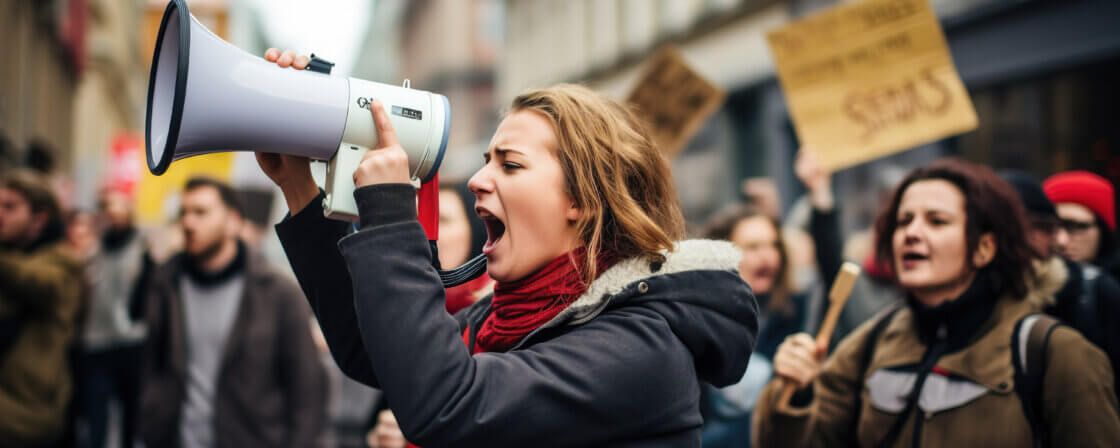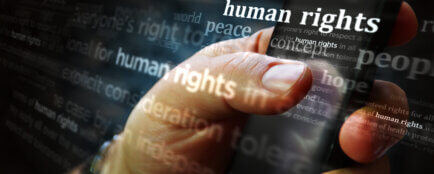What is democracy and how does it work
Democracy is a political system in which supreme power comes from the people. People participate in the governance of the state through elections or directly, for example through referendums.
Democracy is based on several key principles without which it could not function. These principles are not just political theory, but are reflected in the daily lives of citizens and are protected by the constitution and the rule of law.
Free and fair elections
At the heart of democracy are elections, which must be regular, universal, free and fair. Every citizen has the right to vote and to be voted for, regardless of wealth, origin or opinion. Fair elections mean that all candidates compete for the votes of the electorate on equal terms and that the results are respected. The legal framework for elections is carefully set up to prevent fraud, manipulation or unequal access to the media.
Citizen participation in public life
But democracy is not just about casting a ballot once every four years. It is also about active participation in public life. Everyone has the right to join political parties, associations and initiatives, to sign and organise petitions, to take part in demonstrations or public debates. This enables people to assert their views, influence political decisions and hold the powerful to account.
Accountability and transparency of public authorities
State power in a democracy is not unlimited, it must be accountable to citizens and transparent. This means that decisions made by the government, parliament or authorities must be publicly justified and accountable. Access to information laws, oversight institutions and an independent media are key tools to prevent abuse of power and ensure that public officials serve not themselves but society.
Equality before the law and protection of fundamental rights
Another pillar of democracy is the equality of all citizens before the law. No one can be advantaged or disadvantaged simply because of their status, wealth or opinions. The Constitution and the Charter of Fundamental Rights and Freedoms guarantee that everyone has the same rights and freedoms, such as the right to a fair trial, freedom of expression and non-discrimination. Independent courts then ensure that these rights are actually respected.
Are you solving a similar problem?
Need legal help?
Democracy is based on the protection of individual rights. If you feel that your rights have been violated, whether in relation to the authorities, your employer or otherwise, please contact us. An affordable solicitor will provide you with legal advice quickly, clearly and at an upfront cost.
I need help
- When you order, you know what you will get and how much it will cost.
- We handle everything online or in person at one of our 6 offices.
- We handle 8 out of 10 requests within 2 working days.
- We have specialists for every field of law.
Democracy does not manifest itself in the same way everywhere; there are different forms that reflect the tradition and history of each country.
- Direct democracy – people decide for themselves on specific issues, most often through referendums. This form was typical of ancient Athens, for example, and is now used in Switzerland.
- Representative democracy – citizens elect representatives to parliament who then make decisions on their behalf. This model is the most common because it is practical in complex and large societies.
Most modern states, including the Czech Republic, use representative democracy, but this is often supplemented by elements of direct participation – typically in the form of municipal or national referendums, local plebiscites or public consultations. This mix ensures that citizens not only delegate their power but also have the opportunity to intervene directly in decision-making at key moments.
Plurality democracy or multi-vote government
Plural democracy is a system in which multiple political parties, views and values coexist. Its essence is that no one group has a monopoly on truth or power. The competition of different views leads to a better balance and allows minorities and the opposition to be represented.
Pluralism is manifested in particular in political competition between parties, freedom of expression and the media, the right to form associations and initiatives, and the participation of minorities in public life.
Without pluralism, democracy would easily slide towards authoritarianism, where there are elections, but with only one alternative.
Liberalism and democracy
Democracy is often associated with the term liberalism. It emphasises the protection of individual rights and freedoms – for example, the right to a fair trial, freedom of religion, property rights or freedom of expression.
The combination of democracy and liberalism gives rise to so-called liberal democracy, which is now the standard in the European Union and most Western countries. Its main principles are:
- separation of powers – the executive, legislative and judicial branches control each other,
- protection of minorities from the tyranny of the majority,
- the rule of law, where the rules apply equally to all,
- an independent judiciary as the guarantor of the protection of freedoms.
How has democracy evolved?
The roots of democracy go back deep into Ancient Greece, particularly to Athens in the 5th century BC. It was then that the idea that power should come from the people was born – free citizens met in an assembly called the ekklesia, where they voted directly on the laws and decisions of the state. It was a form of direct democracy that, while not inclusive of everyone (slaves, women and foreigners were excluded), represented the revolutionary idea that governance was not the prerogative of an individual or elite, but the right of citizens.
The ancient tradition was continued by the Roman Republic, which brought the first hints of representative democracy to history. Citizens elected their representatives (consuls or tribunes) and they represented their interests in the Roman Senate. This system already took into account that a large and complex state needed institutions and representatives, not just a direct vote of all.
Although monarchy prevailed in the Middle Ages, the beginnings of parliamentary forms of government gradually emerged. In England, a parliament was established with the power to pass taxes and later laws. The Magna Carta of 1215 limited the power of the monarch and strengthened the rights of the nobility and gradually the wider public. In other countries, assemblies and estates developed and were the forerunners of modern parliaments.
The Enlightenment and the revolutions of the 18th and 19th centuries brought a real flowering of democracy. Philosophers such as John Locke, Montesquieu and Rousseau formulated the principles of the social contract, the separation of powers and individual freedom. These ideas inspired major historical events – the United States Declaration of Independence (1776) and the French Revolution (1789). Both moments laid the foundations of modern democracy: government by the will of the people, protection of fundamental rights, and equality of citizens.
In the 20th century, democracy gradually spread throughout the world. After the First World War, new democratic states emerged, albeit often fragile. After the Second World War, democracy became the basis of post-war reconstruction in Western Europe and gradually penetrated other regions. The big break came in 1989, when the fall of the Iron Curtain opened the way to freedom for the countries of Central and Eastern Europe, including Czechoslovakia. The events of the Velvet Revolution enabled the Czech Republic to become part of a democratic world based on a constitution, free elections and the protection of human rights.
According to the Democracy Index 2024 by the Economist Intelligence Unit, there are approximately 24 full democracies, 50 imperfect democracies, 33 hybrid regimes and 59 authoritarian regimes in the world.
This means that more than half of the world’s population does not live under fully democratic conditions. Moreover, the trend in recent years shows a rather weakening of democracy – a reduction in media freedom, the rise of populism and authoritarian tendencies.
Tip for article
Tip: The Constitution of the Czech Republic is the cornerstone of our legal system. It is the cornerstone of the Czech Constitution, the document that determines the form of the state, the separation of powers and ensures the protection of fundamental rights and freedoms. Get to know it better.
How the law protects democracy
Without a strong legal framework, democracy could not function. Law provides guarantees that power is not exercised arbitrarily, but in accordance with rules that protect citizens and their freedoms. A fundamental pillar is the Constitution and the Charter of Fundamental Rights and Freedoms, which guarantee, for example, freedom of expression, the right to assemble, equality before the law and non-discrimination. These documents form the cornerstone of the democratic order and set clear boundaries for the exercise of state power.
Equally important is the rule of law and independent courts. Democracy is not just majority rule, but also the protection of the individual against injustice. The courts ensure that laws are applied fairly and that they are not abused. Their independence makes it possible to counter interference by the executive or the legislature and to maintain a balance between the different branches of the state.
Electoral laws and control mechanisms also guarantee the fairness of the democratic process. They determine the rules for holding elections and oversee their regularity. Transparency in the conduct of elections is a fundamental condition for the legitimacy of any government.
Democracy is also strengthened by international human rights treaties, such as the European Convention for the Protection of Human Rights and Fundamental Freedoms. These documents provide citizens with recourse to international judicial institutions should their rights not be sufficiently protected at national level.
Lawyers, courts and independent institutions play an important role throughout the system. It is they who protect individuals from abuses of power, help to uphold justice and ensure that the principles of democracy are not just an empty concept, but an actual working reality.
Summary
Democracy, literally ‘rule by the people’, is a political system in which power emanates from the people and is exercised through elections or direct forms of participation such as referendums. Its basic principles are free and fair elections, active participation of citizens in public life, accountability and transparency of government, equality before the law and the protection of fundamental rights. Historically, it was born in ancient Athens as a direct democracy, the Roman Republic added representative elements, medieval parliaments limited the power of rulers, and the Enlightenment, along with the revolutions of the 18th and 19th centuries, laid the foundations for modern constitutional systems. In the 20th century, democracy spread around the world, with key milestones being the post-war reconstruction and the fall of the Iron Curtain in 1989, when the Czech Republic joined the democratic world. Today, there are different forms – direct and representative democracy, pluralist democracy emphasising competition between political parties and views, or liberal democracy protecting individual rights through the separation of powers and an independent judiciary. Democracy is protected by constitutions, electoral laws, independent courts, international human rights treaties and the work of lawyers and independent institutions to ensure that the governance of the state remains consistent with the principles of liberty and justice.
Frequently Asked Questions
What is democracy?
Democracy is a political system in which power comes from the people and citizens participate in the governance of the state through elections or referendums.
What does pluralist democracy mean?
Plural democracy is a system where multiple political parties and views exist side by side, ensuring balance and protection for minorities.
How does liberalism relate to democracy?
Liberalism emphasises the protection of individual rights and freedoms. Combined with democracy, liberal democracy is the standard in modern states.
How many states are democratic today?
According to the Democracy Index, there are approximately 24 full democracies and 50 imperfect democracies in the world, with the rest being hybrid and authoritarian regimes.




